The National Library of Israel is a repository of Jewish heritage, preserving the memory of Jewish culture and the Jewish people throughout history, from their very beginnings to the present-day State of Israel.
As such, the Library continuously strives to collect all materials, past and present, relevant to the Jewish people and the Land of Israel.
.jpg)
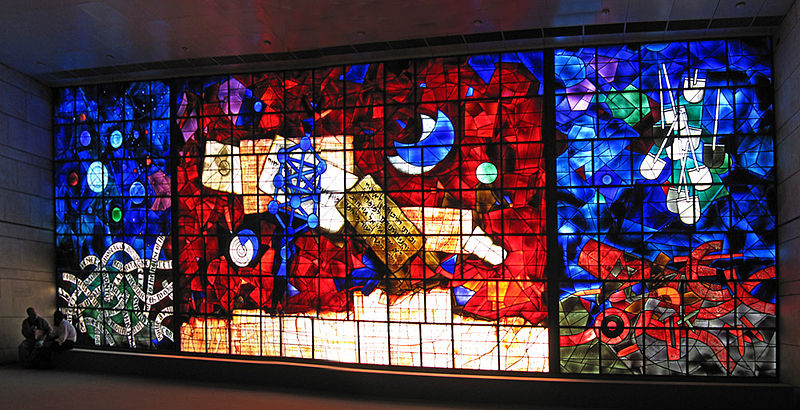
-
THE VISION
The written word has always stood at the center of Jewish religion and culture. And yet, it was not until the end of the 19th century that the idea of aggregating all Jewish written material in one place arose.
The Jewish National Movement, which came into being during the last quarter of the 19th century, sought to establish an independent Jewish State in the ancient Jewish homeland – the Land of Israel. The idea of collecting written Jewish heritage developed in tandem with the idea of the foundation of a Jewish State. A Jewish State was in fact meaningless without its cultural legacy. Unlike other national libraries which were founded on previous collections – the National Library of Israel began ex nihilo.
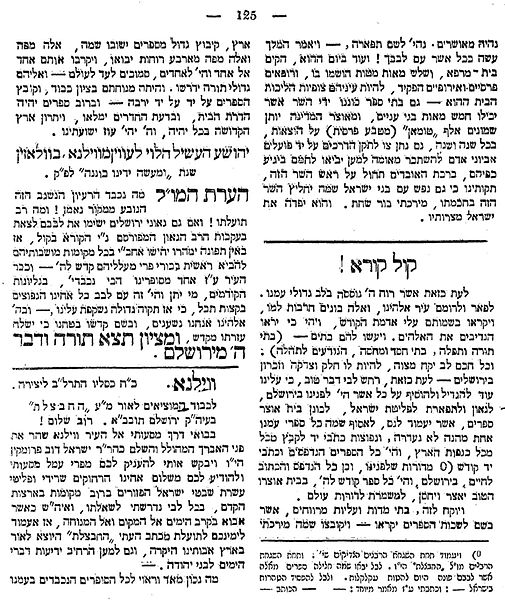 The first article calling for the establishment of a Jewish national library, Joshua Heschel Levin, Habazeleth newspaper, 26.1.1872
The first article calling for the establishment of a Jewish national library, Joshua Heschel Levin, Habazeleth newspaper, 26.1.1872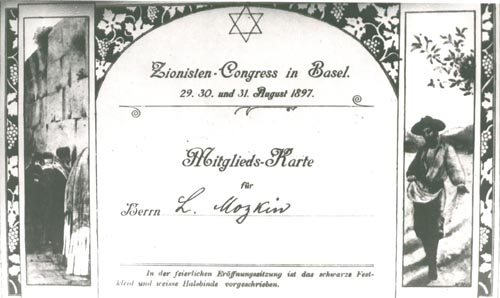 Participant card at the First Zionist Congress, 1897
Participant card at the First Zionist Congress, 1897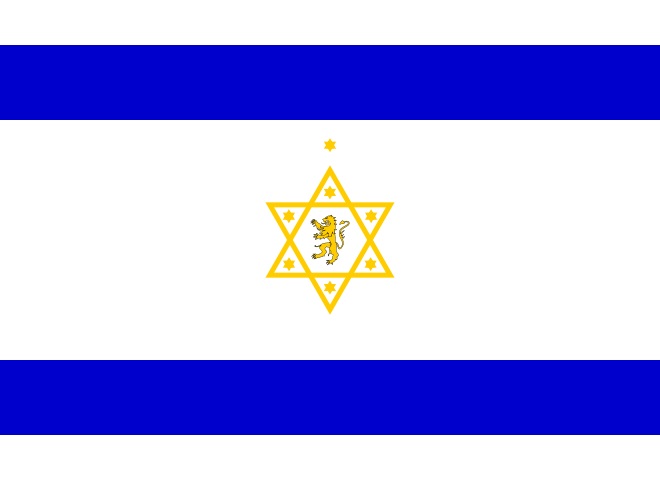 Flag of the First Zionist Congress, 1897
Flag of the First Zionist Congress, 1897 -
THE FOUNDING OF THE LIBRARY
In 1892, exactly 400 years after the expulsion of the Jews from Spain, a small "Bnei Brith" library, meant to serve as the core of a national library, was founded in Jerusalem.
The idea of a national library materialized due to one man's determined efforts: In 1890, Joseph Chazanowitch, a learned Jewish scholar and physician from Russia, visited Palestine as part of a Zionist delegation. From that point forward he dedicated his life to the creation of a national Jewish library. By 1914, he had managed to collect 22,000 books. In 1899, Chazanowitch wrote:
"A big, high and lofty house will be built in Jerusalem where all the spiritual fruit of Israel will be preserved from the time it became a people…".
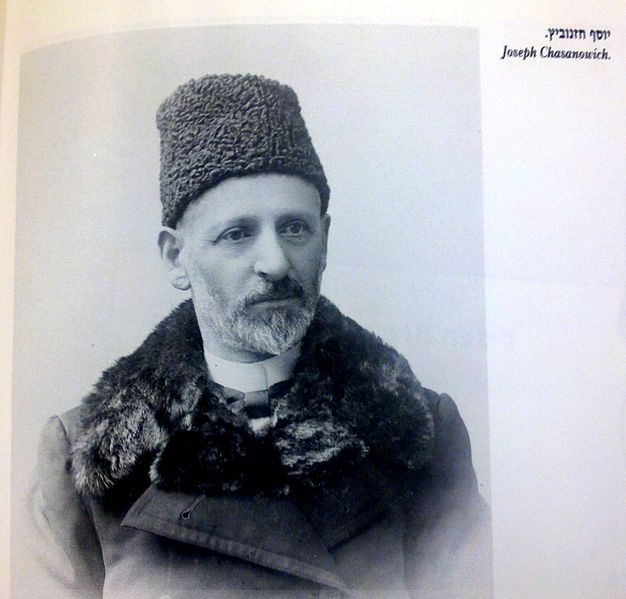 Joseph Chasanowitz
Joseph Chasanowitz.jpg) Reading room at Bet Neeman, the Midrash Abarbanel Library, 1902 (photo Zadok Basan)
Reading room at Bet Neeman, the Midrash Abarbanel Library, 1902 (photo Zadok Basan) -
A JEWISH NATIONAL AND UNIVERSITY LIBRARY
In 1920, the small Bnei Brith Library was transferred to the World Zionist Organization, S.H. Bergmann, a librarian at the German University in Prague and a philosopher, was appointed its director. In 1925, with the foundation of the Hebrew University of Jerusalem, the Library was declared to be both a national and university library. Up until that point, the Library contained only Jewish texts. However, Bergmann set out to turn the Library into a modern university library. During his term, from 1920 – 1935, the number of books in the Library grew from 30,000 to 300,000. He expanded the Library to include books on various areas in the humanities and sciences.
.jpg) The Goldziher library at Bet-Neeman, 1927 (Photo, Zadok Basan)
The Goldziher library at Bet-Neeman, 1927 (Photo, Zadok Basan)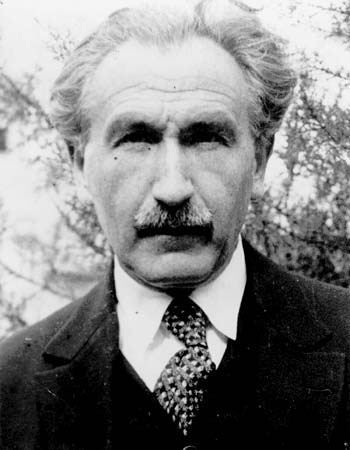 Shmuel Hugo Bergman
Shmuel Hugo Bergman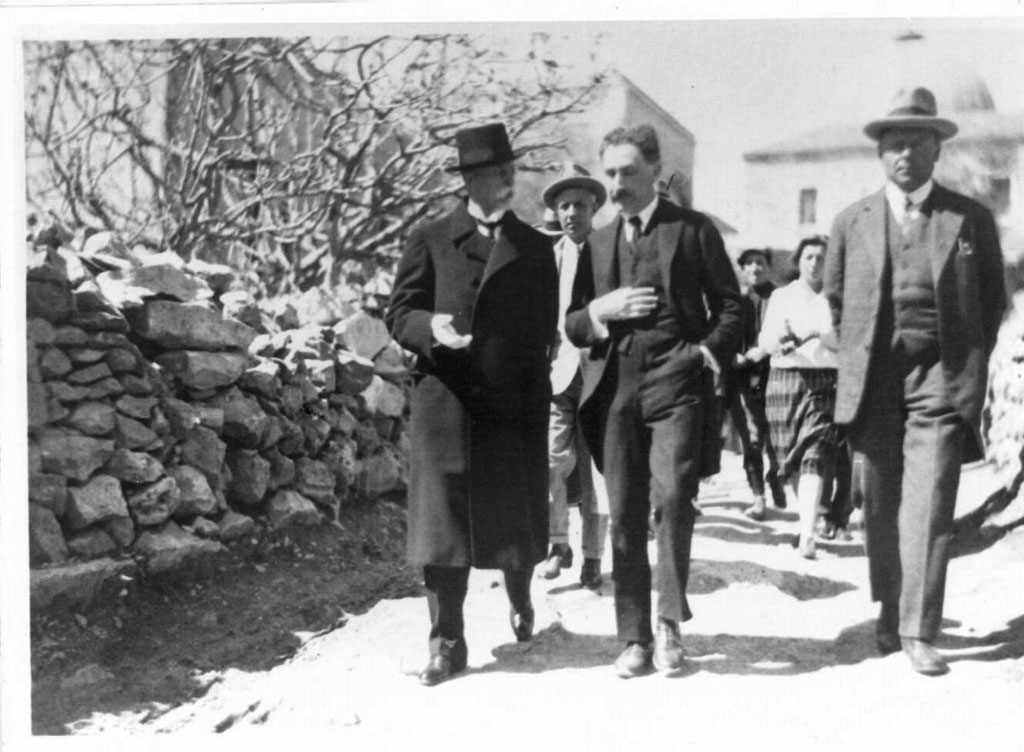 Bergman and the Czech president Masaryk on their way to visit the National Library, Jerusalem, 1927
Bergman and the Czech president Masaryk on their way to visit the National Library, Jerusalem, 1927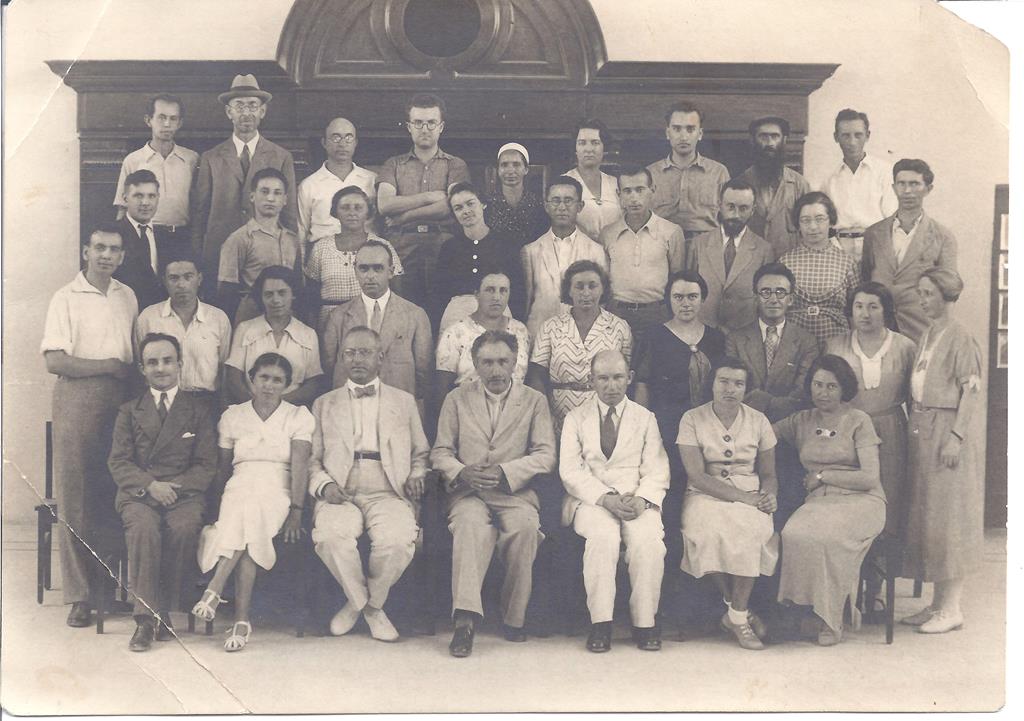 The library staff with Bergmann as director in the middle, around 1935
The library staff with Bergmann as director in the middle, around 1935 -
1930 – 1960: TRANSITIONS
In 1930, the young library was given a new impressive home on the newly-built campus of the Hebrew University on Mount Scopus. However, this beautiful building was hastily abandoned in 1947 when the area came under Jordanian rule during the War of Independence. In the following years, books were gradually smuggled out and placed in various temporary locations.
In1960, the Library was given a home on the new Hebrew University campus on Giva'at Ram in Jerusalem. This building has been the Library's permanent home since then.
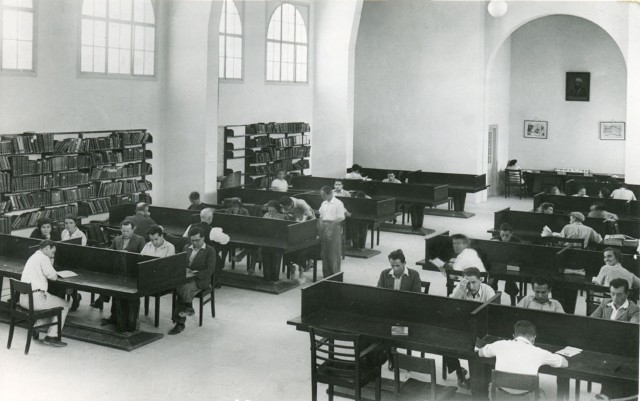 The reading room at Wolfson House, Mount Scopus, 1930's-40's
The reading room at Wolfson House, Mount Scopus, 1930's-40's.jpg) The entrance of the National Library, 1960 (Photo, Miriam Shamir)
The entrance of the National Library, 1960 (Photo, Miriam Shamir).jpg) The circulation desk, opening day of the NLI, 1.11.1960 (Photo, David Charis)
The circulation desk, opening day of the NLI, 1.11.1960 (Photo, David Charis).jpg) The library at its temporary home at the Terra Sancta building, 1960 (Photo, David Charis)
The library at its temporary home at the Terra Sancta building, 1960 (Photo, David Charis)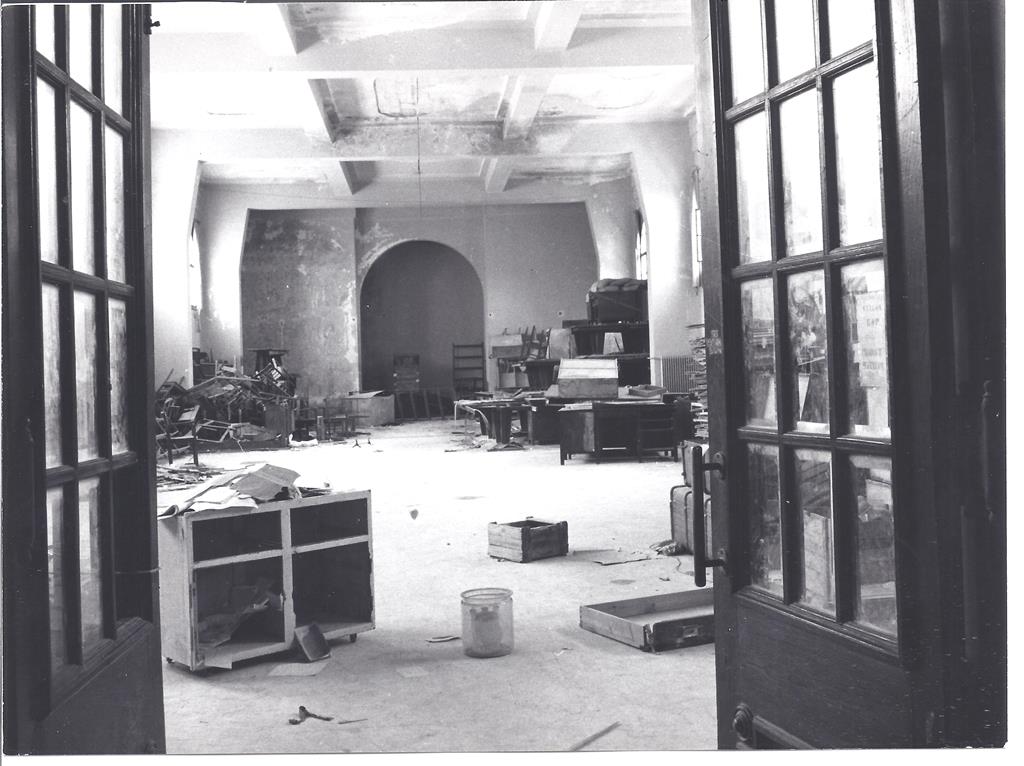 The return to the reading room of the library at Mount Scopus after twenty years of desolation
The return to the reading room of the library at Mount Scopus after twenty years of desolation -
BEN GURION'S UNIQUE INITIATIVE
In 1950, Israel's first prime-minister, David Ben Gurion, allocated an immense sum from the then empty coffers of the young state, in order to obtain microfilms of all Hebrew manuscripts . These were posited at the National Library in the newly established Institute of Microfilmed Hebrew Manuscripts.
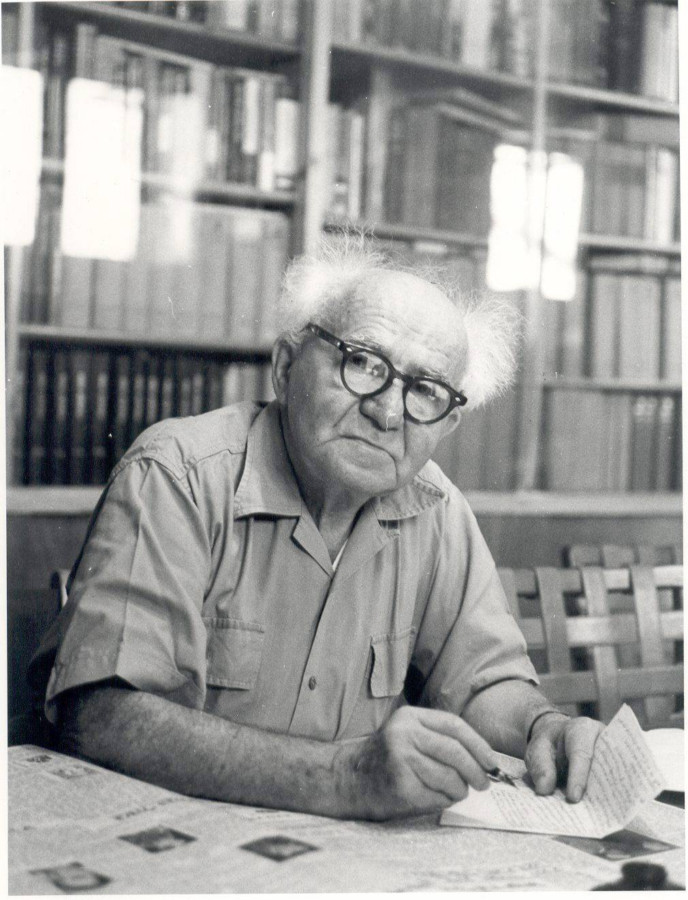 David Ben Gurion by his work desk
David Ben Gurion by his work desk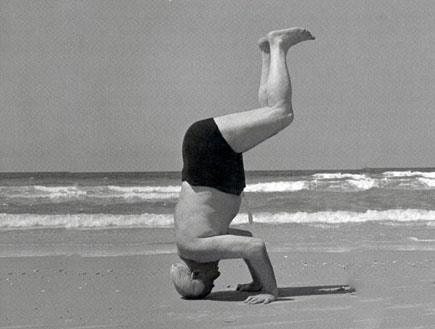 David Ben Gurion standing on his head at the beach
David Ben Gurion standing on his head at the beach -
SEPARATION FROM THE HEBREW UNIVERSITY
Following the 1967 War, it was decided that the Humanities and Social Sciences campus would return to Mt. Scopus. When this move was completed in 1982, a new library was opened on Mt. Scopus and the Library in Giva'at Ram was no longer the main university library for the Humanities. In addition, the Hebrew University was now one of a growing number of academic institutions in the country. At this point, it was both in the interest of the University and the State that the National Library be separated from the University and become an independent institution serving the needs of a diverse community of readers.
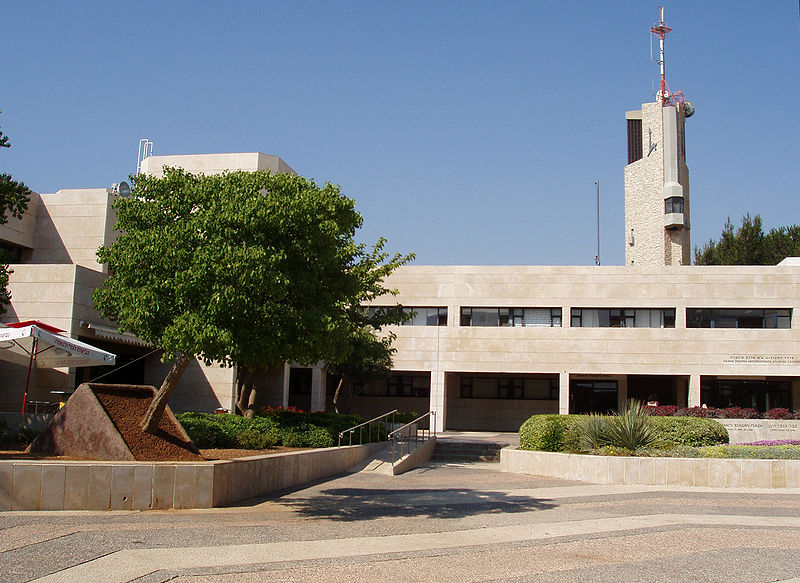 The modern Mount Scopus campus of the Hebrew University
The modern Mount Scopus campus of the Hebrew University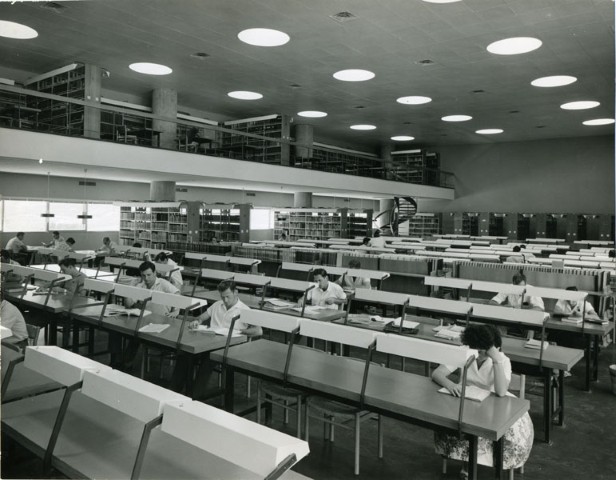 The general reading room, Givat Ram, 1960's-70's
The general reading room, Givat Ram, 1960's-70's -
THE NATIONAL LIBRARY LAW IS ENACTED
In 2007, the National Library Law was enacted. The Knesset's (Israeli Parliament) mandate charged the National Library to collect, preserve, cultivate and endow treasures of knowledge, heritage and culture, with an emphasis on the Land of Israel, the State of Israel, and the Jewish people around the world. As of 2011, the Library was granted independent legal status
The National Library's mission is to serve as the country's repository, to disseminate knowledge and offer democratic access to the vast world of physical and digital resources, as well as to establish the National Library as a center for cultural and educational activity.
In order to fulfill its new role, the government allocated a prominent location, between the Knesset and the Israel Museum, for a new state-of-the-art facility which will be completed in 2017.
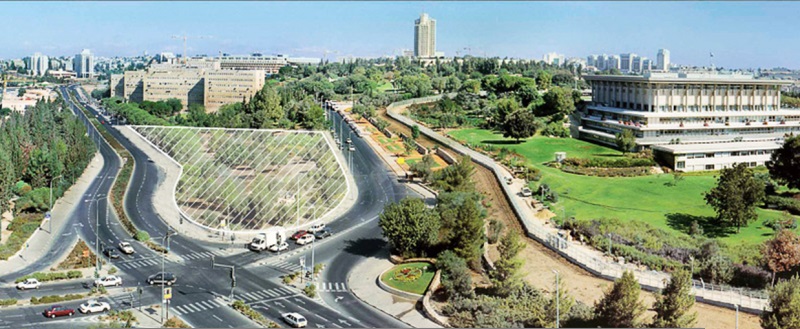 The future site of the National Library, on the right - Israel's Parliament, the Knesset
The future site of the National Library, on the right - Israel's Parliament, the Knesset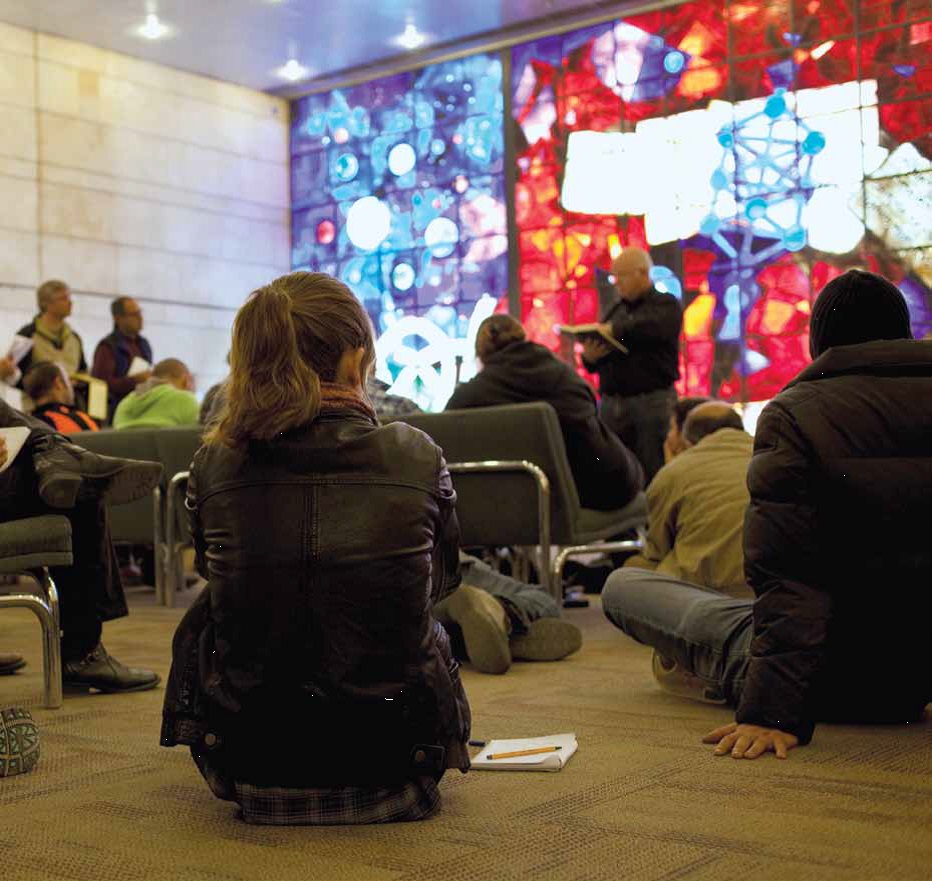 Cultural activity at the National Library
Cultural activity at the National Library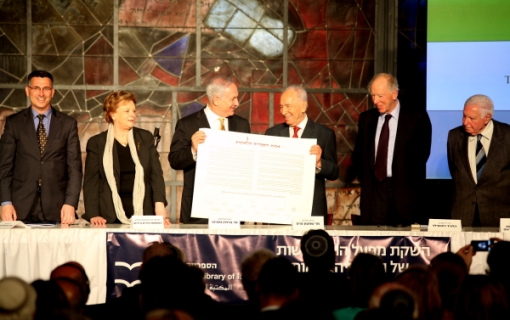 Prime Minister Netanyahu and President Peres with the National Library's Charter, 2011
Prime Minister Netanyahu and President Peres with the National Library's Charter, 2011